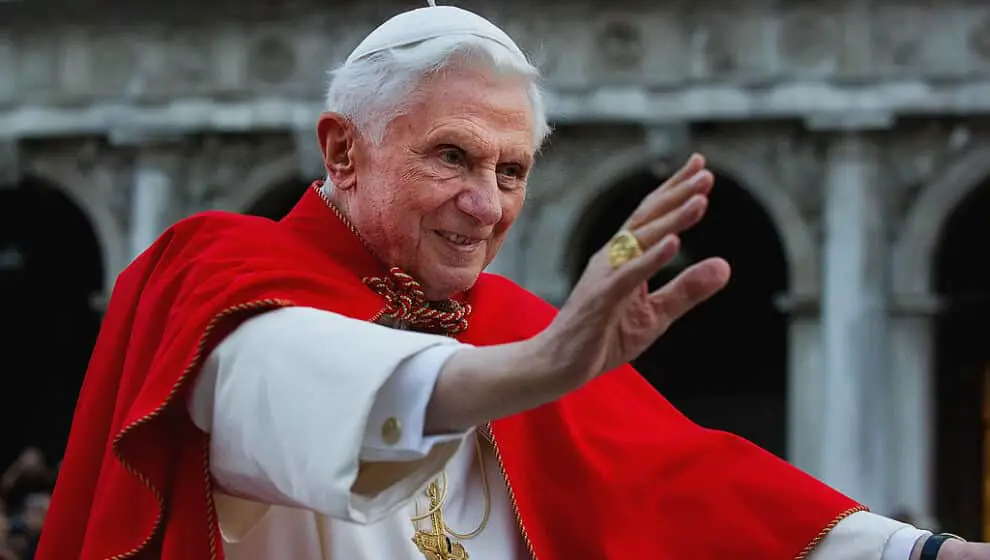Pope Emeritus Benedict XVI passed away on Saturday, December 31, at the age of 95, leaving behind a lifetime of leadership lessons.
Key Details
- Joseph Ratzinger was born on April 16, 1927, joined the Catholic Church as a priest in 1951, and was appointed to the title of Pope in April 2005 following the death of Pope John Paul II.
- He served until February 2013, becoming the first Pope since 1415 to retire before his death, following years of health issues and multiple scandals.
- His final words were, “Lord, I love you.”
- His body is currently lying in state at St. Peter’s Basilica in Rome. His funeral will take place on Wednesday, January 5, at St. Peter’s Square, with Pope Francis overseeing it.
Why it’s News
Pope Benedict leaves behind a conflicted legacy of leadership, having brought many improvements to Catholic liturgy while overseeing several significant controversies within the church under his leadership. He is respected as a teacher, a theologian, and a defender of the faith. He spent his eight-year term as the head of the Catholic Church attempting to evangelize to a secular world and address issues within the church.
His accomplishments as Pope include renewed dialog between the Catholic Church and the Jewish, Muslim, Anglican, and Orthodox faiths; a reaffirmation of the Church’s moral teachings on sexuality,; restoring Latin rites as an accepted form of worship; and meeting with victims of clerical sex abuse—publicly apologizing for not doing more to remove abusive priests from positions of power.
He is remembered fondly by conservative Catholics who appreciate the changes he made to advance traditional Latin mass, which had been restricted to vernacular mass by the changes brought about by the Second Vatican Council in 1965, which Benedict himself played a role in advancing early in his career.
Backing up a Bit
Cardinal Ratzinger had no intention of becoming Pope. He had approached Pope John Paul II with his intention of backing out of church administration to dedicate his life to peaceful study in his home country Bavaria. He was instead pulled into the position of overseeing the Catholic Church through the sex abuse crisis, a banking scandal, and a leak of Vatican documents to the Italian press called “Vatileaks.”
“Cardinal Ratzinger preferred university life to church administration. He didn’t want to become head of the Vatican’s office on doctrine, he tried to leave after he was there, and he didn’t want to become pope. Some observers see weaknesses in his approach to leadership and even, in some cases, to theology,” says The National Catholic Register.
Notable Quote
“At a time of theological, liturgical, and moral chaos, he grounded us, with new language fit for the time, to the wisdom that preceded us and taught us something essential to be Catholic in any age,” says Columbia University chaplain Fr. Roger Landry.
